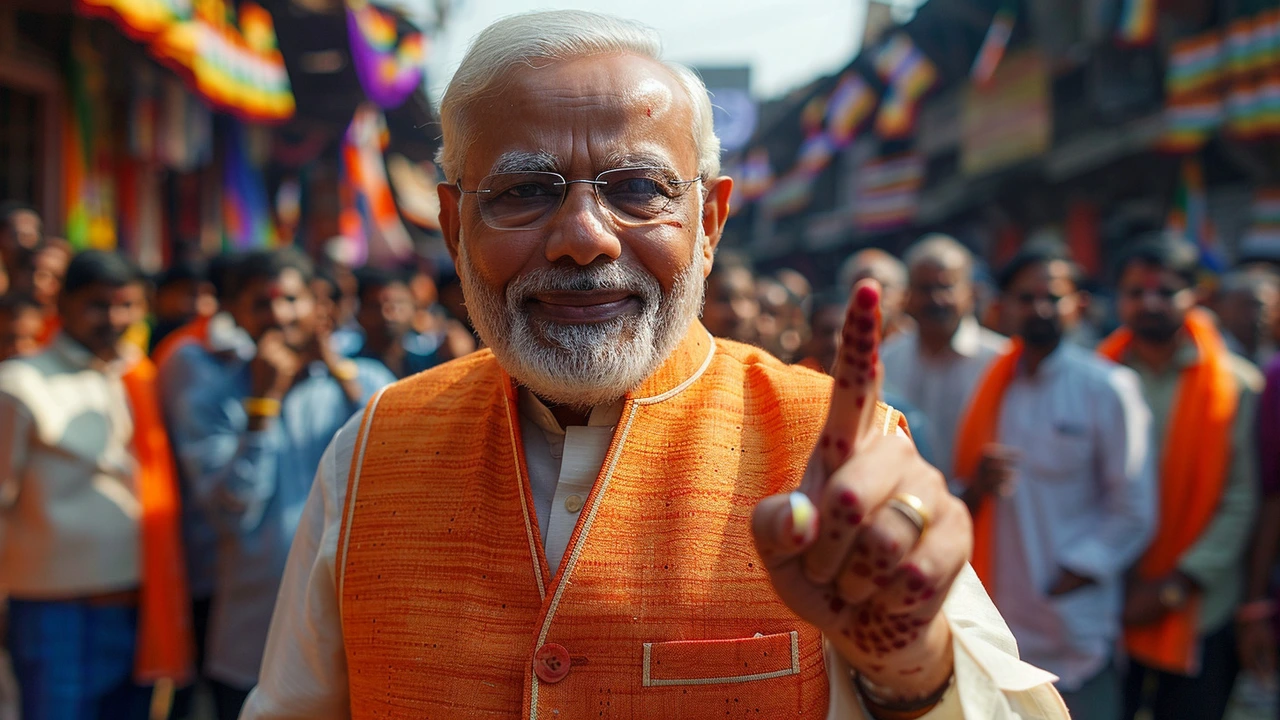
BJP-Led NDA Poised for Narrow Win in India's General Elections
In what has been one of the most watched elections globally, India's Bharatiya Janata Party (BJP)-led National Democratic Alliance (NDA) is on track to retain power, although with a much narrower margin than initially predicted. According to the latest data from the Election Commission, the NDA is leading on nearly 290 parliamentary seats, while the opposition bloc, Indian National Developmental Inclusive Alliance (INDIA), spearheaded by the Indian National Congress, is leading on approximately 230 seats.
This is a stark contrast to the landslide victory the BJP enjoyed in 2019 when it secured 353 seats. As the dust of the campaign trails settles, it is apparent that the party's majority in parliament will shrink by about 60 seats. Prime Minister Narendra Modi, a magnetizing figure whose tenure has seen both massive support and significant dissent, will now need to navigate a more nuanced political landscape fraught with challenges.
Challenges Ahead
Despite retaining the prime ministership, Narendra Modi and his party face a range of domestic issues that they will need to address urgently. The lingering concerns over unemployment and inflation appear to have dented the BJP's previous stronghold over the electorate. Unemployment rates have reached record highs in certain sectors, and the rising cost of living has been a hot topic on the campaign trail. Moreover, governance issues and accusations of centralization of power have forced voters to reconsider their choices. Even among Modi's supporters, there is a growing sentiment that real, tangible improvements need to be seen in their daily lives.
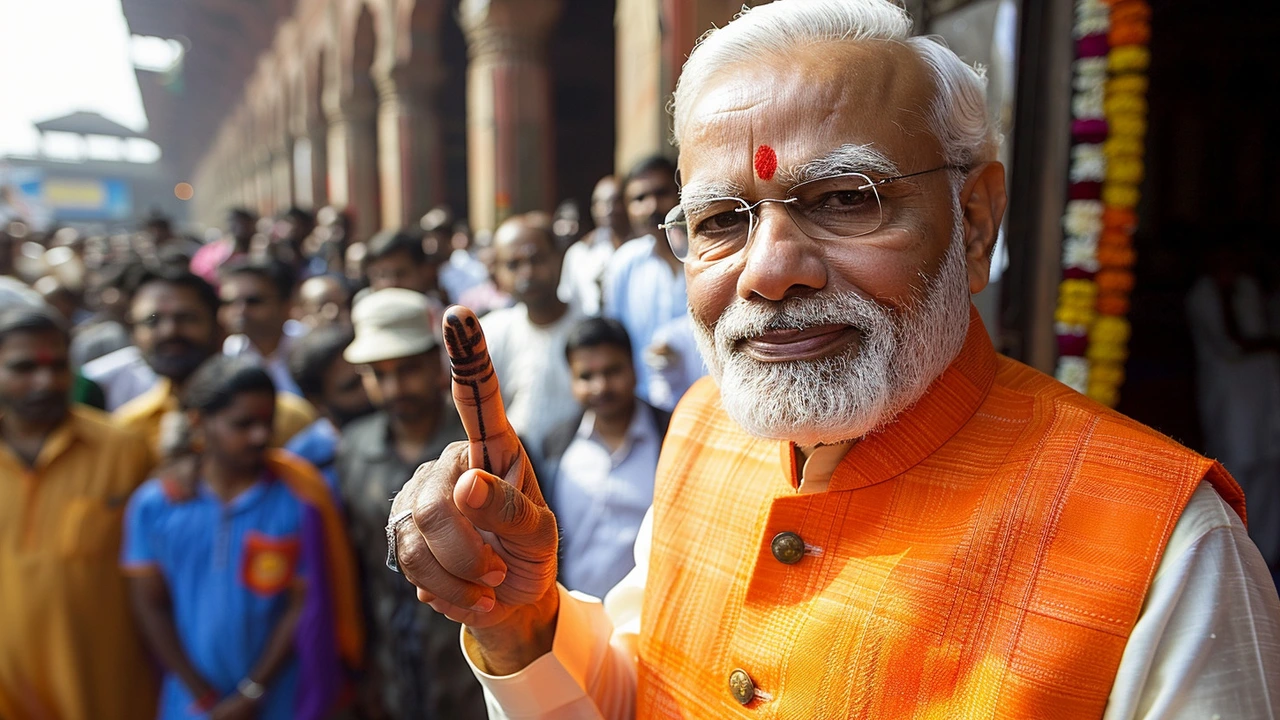
Economic Growth: A Double-Edged Sword
On the economic front, India has experienced robust growth under Modi's leadership. The nation was touted as the fastest-growing economy in the world, expanding by an impressive 8.2% in the fiscal year 2024. The International Monetary Fund (IMF) has forecasted India's economy to grow at 6.8% in 2024 and 6.5% in 2025. However, this rapid growth hasn't equitably trickled down to all segments of society. The economic benefits have been unevenly distributed, creating a gap that opposition parties have been quick to highlight. Modi's latest manifesto promises to catapult India into the top three economies of the world, fight systemic poverty, and weed out corruption. While these goals are ambitious, achieving them will require addressing deep-rooted structural issues.
Shift in Political Landscape
This election marks a significant shift in the political climate of India. While Modi's populist appeal remains strong, the electorate seems to be more concerned with daily realities than with grand narratives. This change has been reflected in the opposition's gains, making it clear that voters are seeking policies that address their immediate needs rather than long-term promises. Healthcare, education, and infrastructure development are some areas where voters are demanding more action and fewer assurances. It is becoming evident that the political narrative is shifting from personality-driven campaigns to issue-based politics.
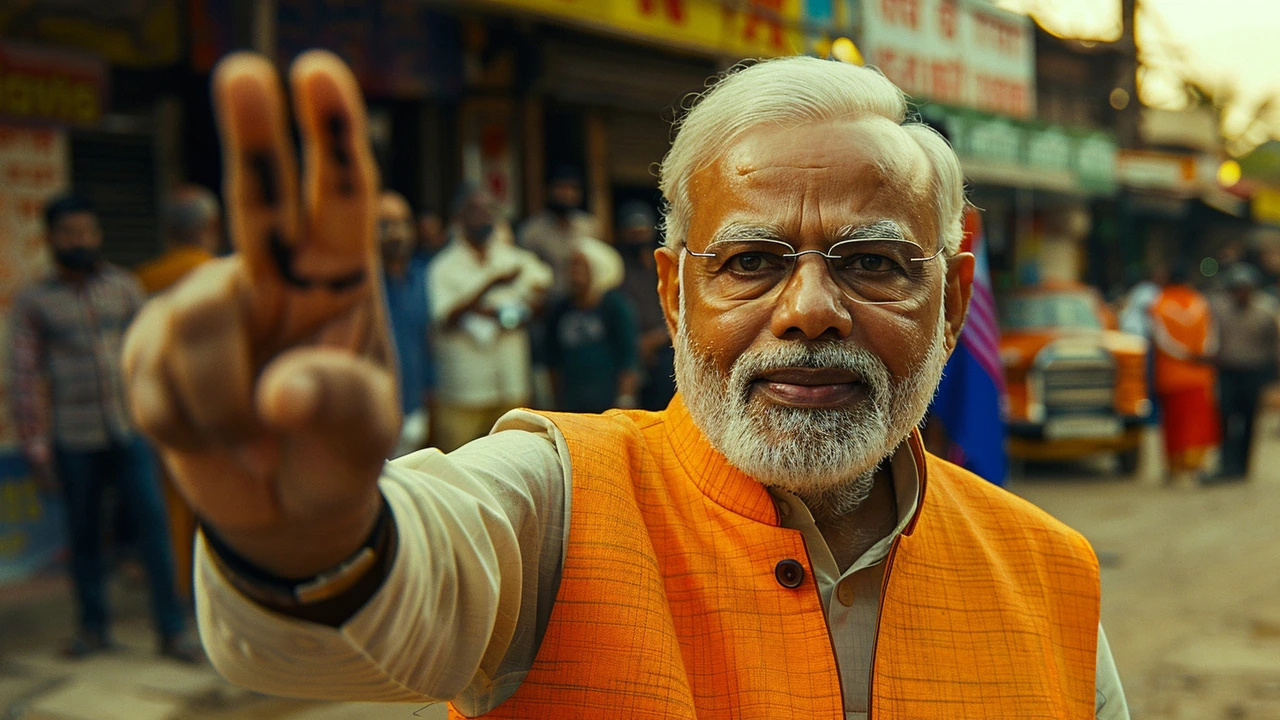
Democratic Decline: A Major Concern
Concerns over the erosion of democratic values have been a recurring theme throughout Modi's tenure. Critics argue that the BJP has increasingly used legal frameworks to suppress dissent and stifle criticism. This has raised red flags among human rights organizations and international observers who see this trend as a threat to India's democratic foundation. The global community has voiced its apprehension over these developments, urging for a more transparent and accountable governance model.
Despite these challenges, the massive electoral turnout is seen as a testament to India’s strong democratic values. With over 900 million eligible voters, the scale of this democratic exercise is unparalleled globally. The fact that such a vast and diverse nation can successfully conduct elections of this magnitude speaks volumes about the robustness of its electoral system.
Looking Ahead
As Modi prepares for his upcoming tenure, the road ahead appears challenging yet filled with potential. This period might serve as an opportunity for the BJP to recalibrate its strategies and address the pressing issues that affect the common man. By focusing more on policy implementation rather than populist rhetoric, the government can regain some of the lost ground and emerge stronger. Furthermore, with a more robust opposition, the parliamentary debate is likely to become more dynamic and issue-focused, potentially leading to more comprehensive policymaking.
The next few years will be crucial in determining the trajectory of India's future. Will Modi's leadership deliver on the promises made, or will voters' growing discontent continue to reshape the political landscape? Only time will tell, but one thing is certain - the aspirations of nearly one-fifth of the global population hinge on the outcomes of these significant political shifts.
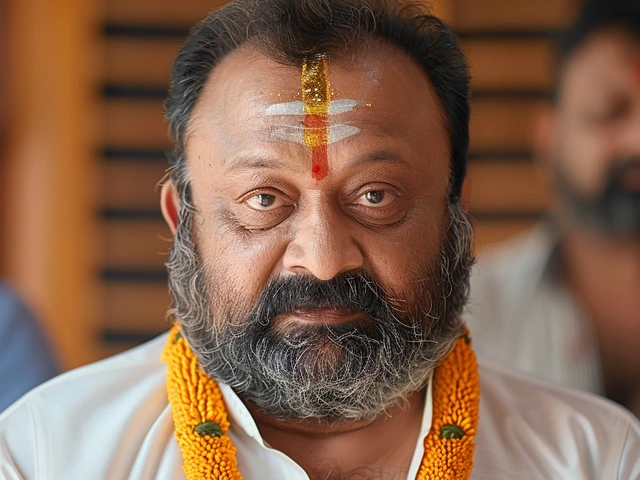
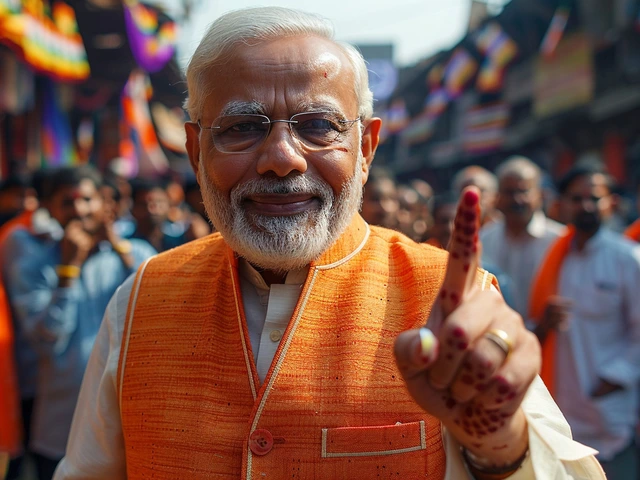
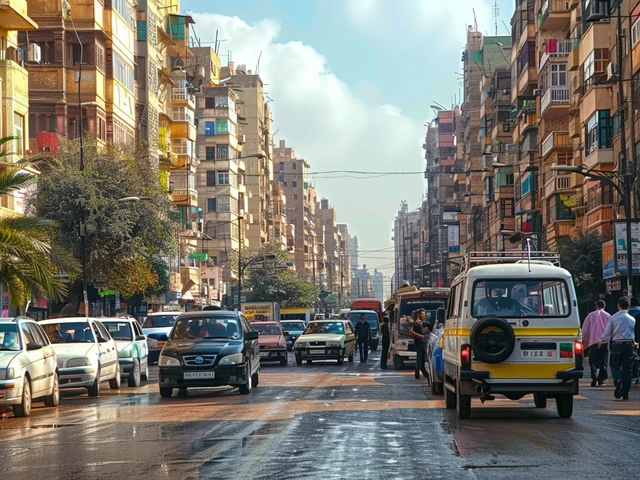
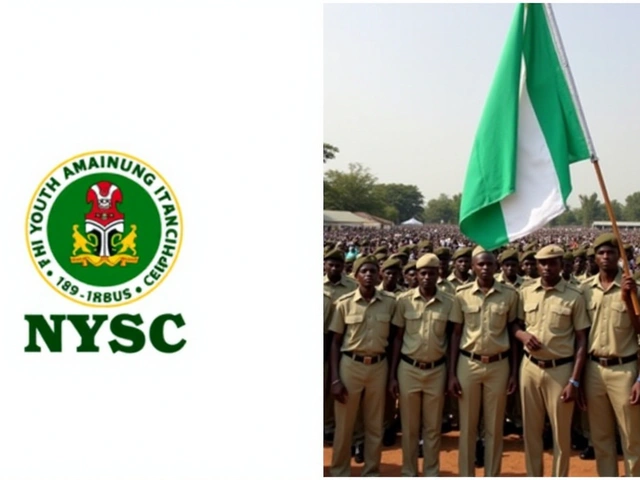

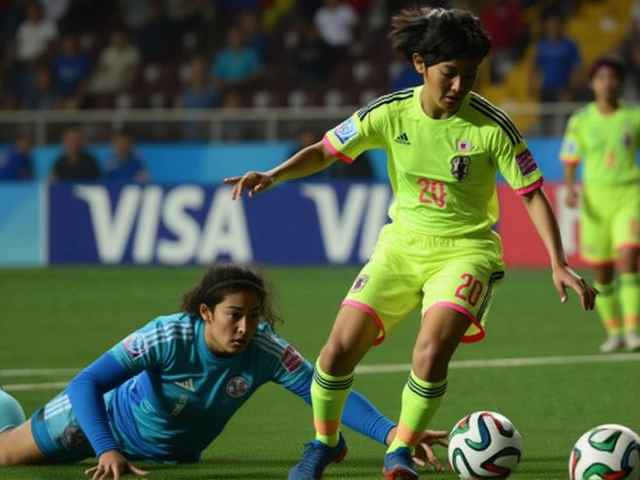

Modi’s win looks slimmer but the NDA still holds the reins in Delhi and beyond
The tides have clearly shifted – voters are no longer swayed solely by grand rhetoric but by tangible day‑to‑day concerns. While the BJP’s growth figures are impressive, the stark disparity in how those gains trickle down cannot be ignored. It’s a reminder that democracy thrives when leaders listen, adapt, and bridge the gap between promise and lived reality.
The electoral data underscores a nuanced mandate for the NDA, suggesting that while the coalition retains power, its policy agenda must now accommodate a broader spectrum of public expectations. Unemployment and inflation have emerged as pivotal issues that cannot be relegated to peripheral discussions. A calibrated approach that blends macro‑economic growth with targeted social interventions will be essential. Moreover, fostering transparent governance could mitigate concerns about centralization of authority.
It is incumbent upon any astute observer of Indian politics to recognize that the recent electoral outcome is not merely a statistical footnote but a substantive realignment of voter sentiment. The National Democratic Alliance, while maintaining a numerical advantage, has witnessed a contraction that reflects underlying socio‑economic discontent. First and foremost, the persistently high unemployment rates, particularly among the youth demographic, constitute a palpable source of frustration. Coupled with this is the phenomenon of inflationary pressure eroding real wages, thereby diminishing household purchasing power. Furthermore, the narrative of uninterrupted economic expansion, frequently promulgated by the incumbent administration, must be interrogated against the lived realities of marginalized communities. The stark dichotomy between aggregate GDP growth and equitable wealth distribution underscores a systemic inefficiency that political actors are obliged to address. In addition, the perception of an increasingly centralized executive apparatus has engendered apprehensions regarding democratic robustness. International observers have, in recent months, articulated concerns pertaining to the curtailment of dissent through legislative mechanisms, a trend that warrants vigilant scrutiny. Domestically, the electorate’s pivot towards issue‑oriented politics signals a departure from personality‑centric voting patterns that previously dominated the landscape. Policy frameworks focusing on healthcare accessibility, educational reform, and infrastructural development are now salient determinants of electoral allegiance. The opposition’s strategic emphasis on these domains has resonated with a populace eager for concrete improvements. In light of these dynamics, the incumbent government would benefit from a recalibration of its policy priorities, integrating macro‑economic stewardship with micro‑level interventions. Transparent communication, coupled with demonstrable progress on ground‑level initiatives, could restore a measure of public confidence. Ultimately, the health of India’s democracy will be measured not by the margin of victory but by the capacity of its institutions to adapt, accommodate, and enact policies reflective of an increasingly discerning electorate.
While the data‑driven optimism you espouse is commendable, one must question whether such a “calibrated approach” will suffice to bridge the chasm that has widened between policy intent and citizen experience. The rhetoric of balance often masks an underlying inertia that has, for too long, neglected the pressing demands of the common man.
Yo, you gotta admit the whole “listening and adapting” spiel feels like a script written by the same elite cabal that’s been pulling strings behind the scenes. They want us to think the system’s fair, but the numbers are being tweaked in the shadows, fam.
Modi’s agenda needs a reality check.
The very fabric of democracy is stretched thin when power masquerades as destiny.
Wow!! What a roller‑coaster ride for Indian voters!! 🎢🌏 The numbers are in, and they tell a story of hope, anxiety, and sheer determination!! 📊✨ It’s amazing to see a nation of 900 million people turning out in such massive numbers – a true testament to democratic spirit!! 🙌💖 Let’s hope the next parliament reflects the diverse voices and real concerns of everyday folks!! 🌱🗳️
Sure, because a splash of emojis is the ultimate solution to systemic policy failures.